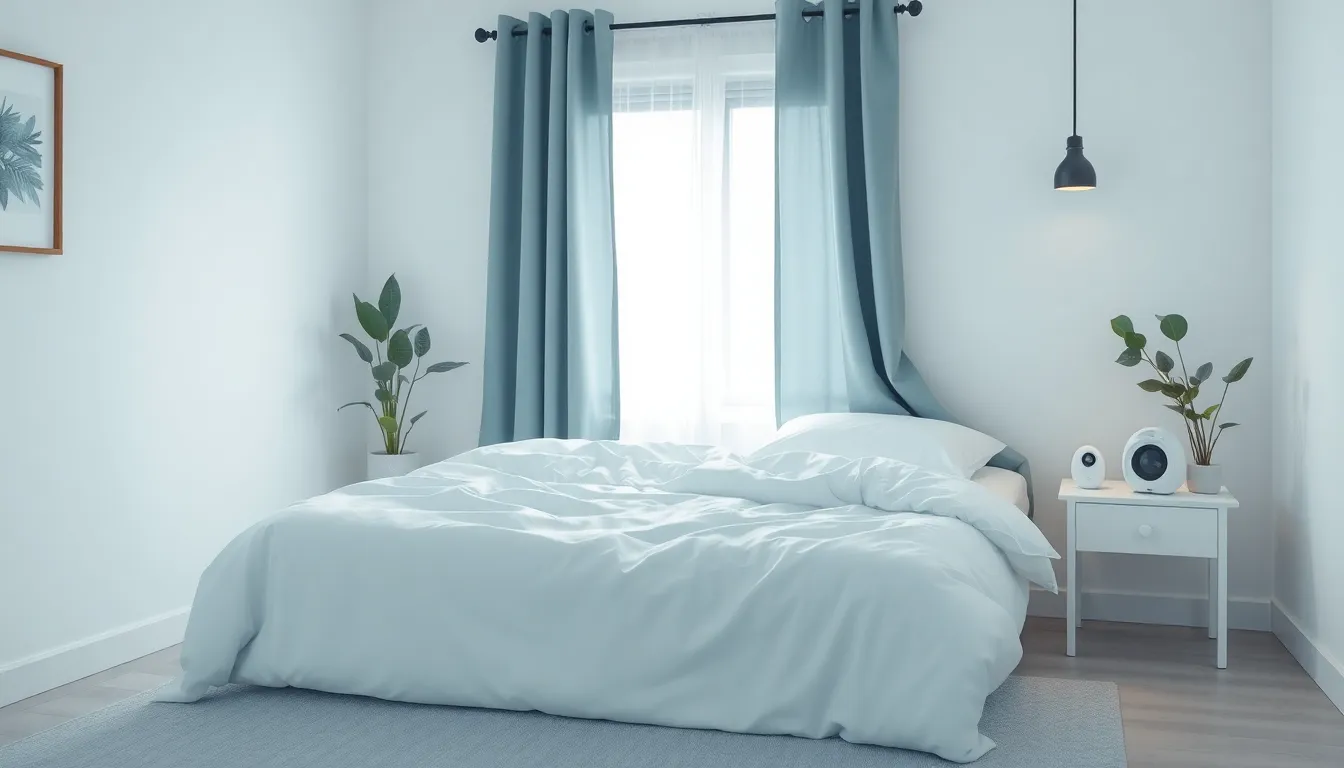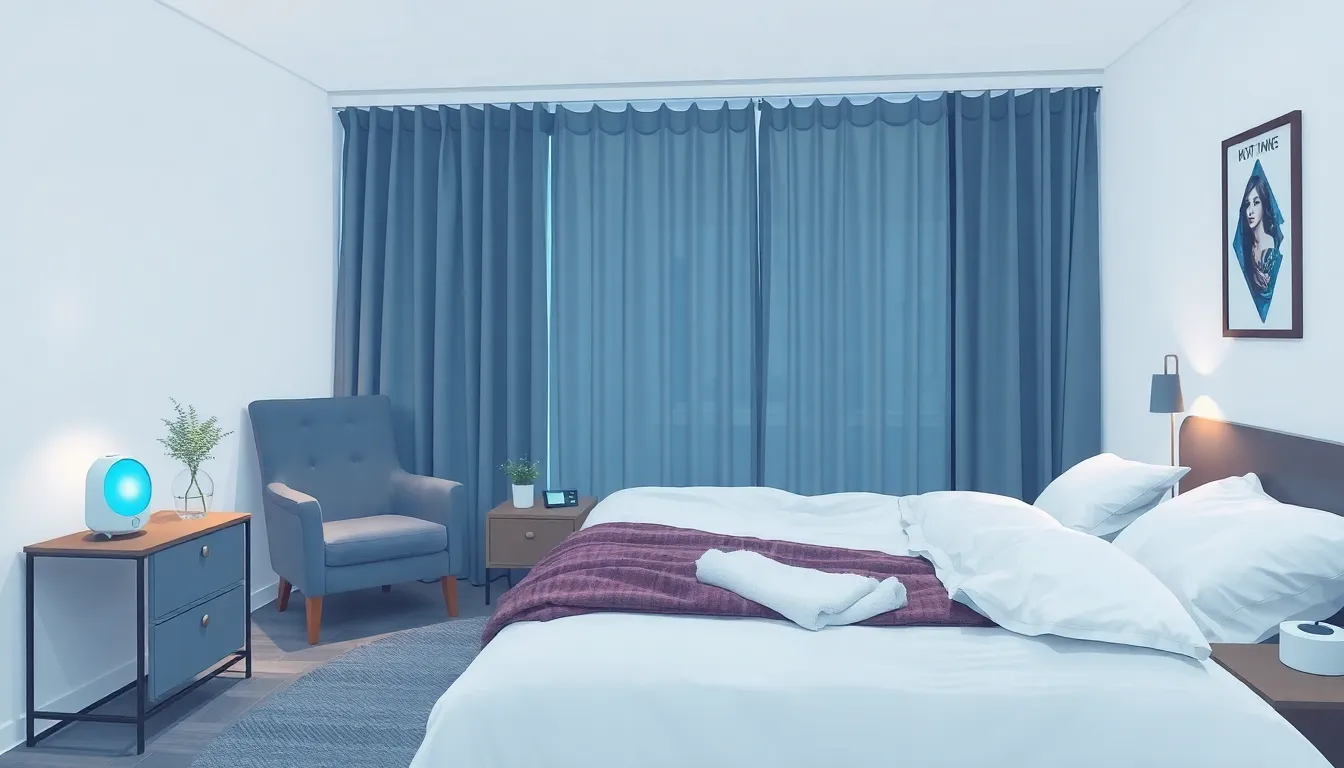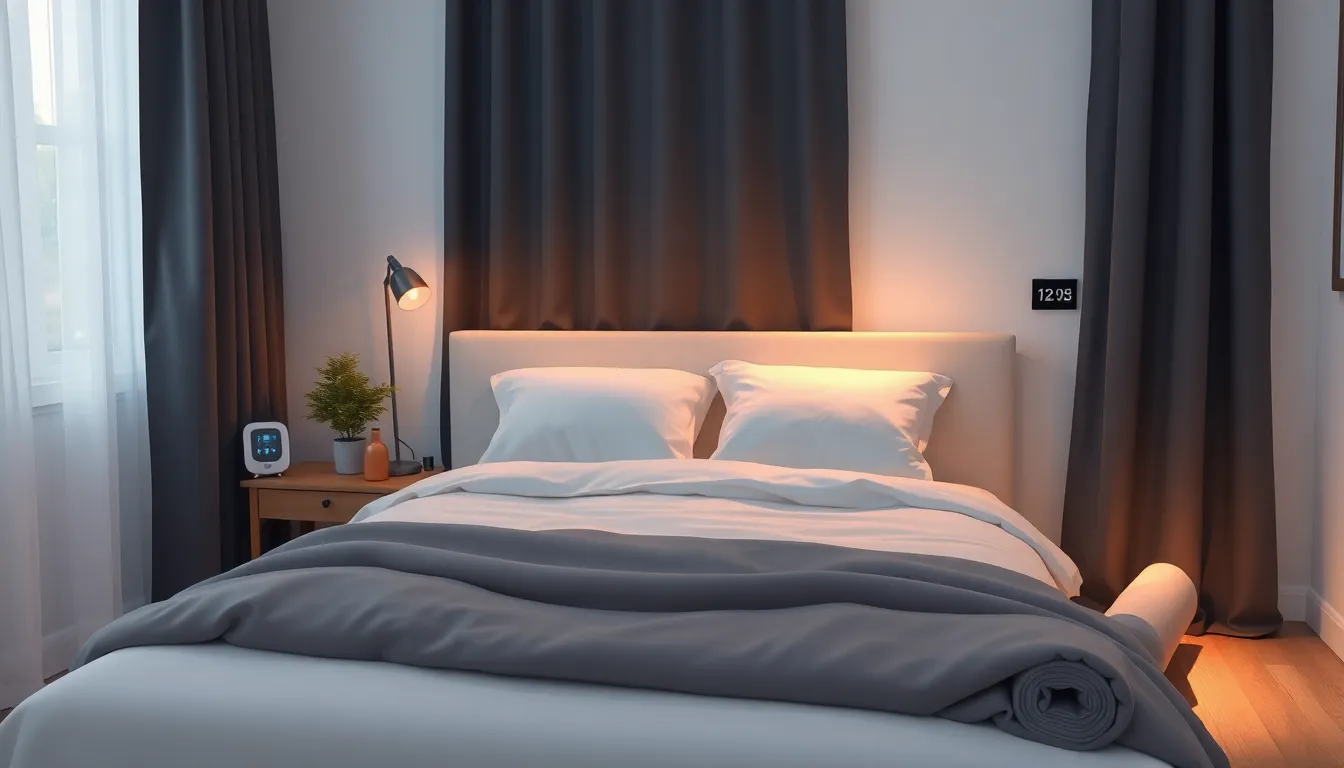In a world where late-night scrolling and binge-watching rule, getting to sleep earlier often feels like an impossible dream—literally. If counting sheep isn’t cutting it and the allure of the next episode keeps pulling you in, it’s time to reclaim your nights. Imagine waking up feeling refreshed, not like a zombie on a caffeine drip.
Table of Contents
ToggleUnderstanding Sleep Patterns
Understanding sleep patterns plays a vital role in achieving restful sleep. Sleep helps mental and physical health, influencing mood, cognitive performance, and overall well-being.
The Importance of Sleep
Sleep impacts numerous aspects of life. Sufficient sleep enhances memory retention and facilitates learning. It also regulates emotions and mitigates stress. Adults typically require 7 to 9 hours of sleep each night for optimal health. Consistently falling short of this range can lead to sleep deprivation, resulting in fatigue, irritability, and long-term health issues.
Common Sleep Disruptors
Identifying common sleep disruptors aids in improving sleep quality. Caffeine consumption late in the day can hinder falling asleep. Excessive screen time before bed interferes with melatonin production. Environmental factors such as noise and light also contribute to restlessness. Stress and anxiety significantly impact sleep quality, making relaxation techniques essential for better sleep practices.
Preparing Your Sleep Environment


An ideal sleep environment promotes relaxation and supports a healthy sleep routine. Prioritizing comfort and reducing distractions leads to more restful nights.
Creating a Comfortable Bedroom
Adjusting bedroom temperature improves sleep quality. Experts recommend a cool environment, ideally between 60°F and 67°F. Selecting a comfortable mattress and pillows enhances support, directly impacting sleep comfort. Keeping bedding clean and fresh contributes to a cozy atmosphere, fostering relaxation. Personalizing decor can create a calming ambiance, essential for winding down at night. Finally, minimizing clutter helps maintain a serene space where the mind can relax.
Managing Light and Noise
Controlling light sources aids in better sleep. Utilizing blackout curtains can block external light, promoting deeper sleep. Limiting screen time before bed helps reduce blue light exposure, which interferes with melatonin production. Using white noise machines can mask disruptive sounds, creating a peaceful environment. Incorporating earplugs protects against unexpected noise disturbances. Lastly, setting a consistent nighttime routine signals the body that it’s time to sleep, further enhancing the ability to fall asleep earlier.
Establishing a Bedtime Routine
A well-structured bedtime routine encourages earlier sleep. Consistency plays a vital role in signaling the body when to wind down and prepare for rest.
Setting a Consistent Sleep Schedule
Setting a consistent sleep schedule reinforces the body’s internal clock. Aiming for a daily bedtime and wake-up time strengthens sleep quality. Sticking to this routine, even on weekends, minimizes fluctuations that can disrupt sleep. Gradually adjusting bedtime by 15 to 30 minutes can help ease into an earlier schedule. Tracking sleep patterns with apps may provide insights into sleep habits. Individual assessment and dietary adjustments, such as limiting caffeine or heavy meals before bedtime, can enhance this commitment.
Relaxation Techniques Before Bed
Relaxation techniques can significantly improve sleep onset. Engaging in activities like reading, meditating, or taking warm baths prepares the mind and body for rest. Breathing exercises help reduce anxiety and promote calmness. Incorporating gentle stretches before bed eases muscle tension and signals relaxation. Analysing personal responses to different activities helps find the most effective methods. Evaluating the effectiveness of each technique promotes a tailored approach to winding down before sleep.
Lifestyle Changes to Promote Sleep
Making lifestyle changes can significantly enhance the ability to sleep earlier. Adjusting daily habits helps establish a more restful nightly routine.
Reducing Caffeine and Alcohol Intake
Caffeine, found in coffee and energy drinks, stimulates the nervous system. Consuming it late in the day, especially within six hours of bedtime, disrupts the body’s natural sleep cycle. Alcohol also interferes with sleep quality, leading to fragmented rest. Reducing caffeine intake to two cups daily and avoiding alcohol in the evening can promote smoother transitions to sleep. Individuals seeking better sleep quality should limit consumption to earlier in the day.
Incorporating Physical Activity
Engaging in regular physical activity plays a crucial role in improving sleep patterns. Exercising daily reduces stress and anxiety, both common sleep disruptors. Aim for at least 150 minutes of moderate aerobic activity weekly, such as walking, cycling, or swimming. Morning or afternoon workouts benefit most people without adversely affecting sleep. Avoid high-intensity workouts close to bedtime, as they can trigger alertness. Prioritizing movement in daily routines supports better sleep and overall well-being.
Achieving an earlier bedtime is a journey that requires commitment and mindful adjustments. By recognizing and addressing sleep disruptors individuals can create a more restful environment that promotes quality sleep. Implementing a consistent bedtime routine and making conscious lifestyle changes are vital steps toward this goal.
As they prioritize their sleep needs they’ll likely find themselves waking up refreshed and ready to tackle the day. With dedication to these practices it’s possible to break free from late-night habits and embrace a healthier sleep schedule that enhances overall well-being. Embracing these strategies will lead to a more rejuvenating sleep experience and improved daily life.




